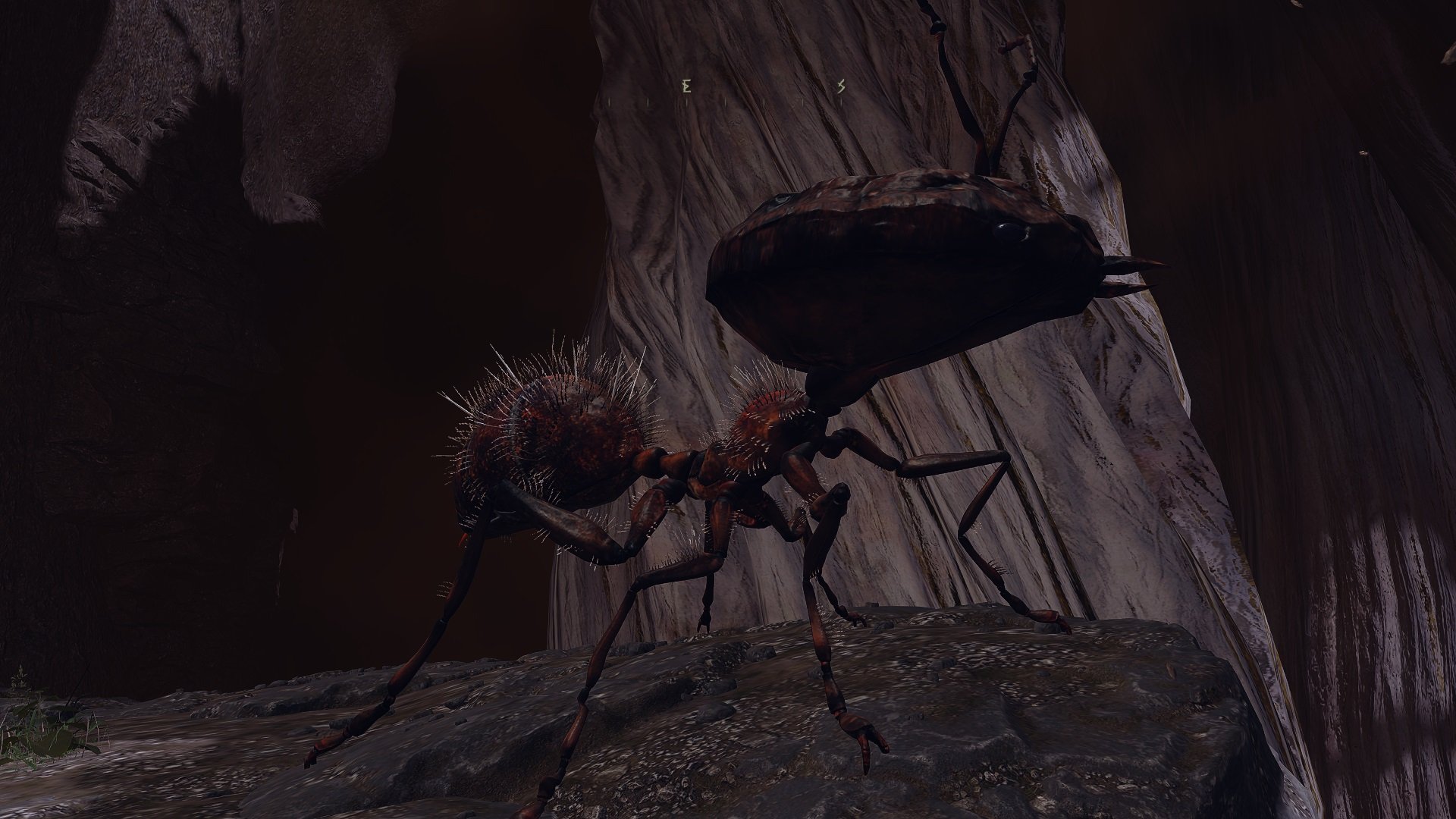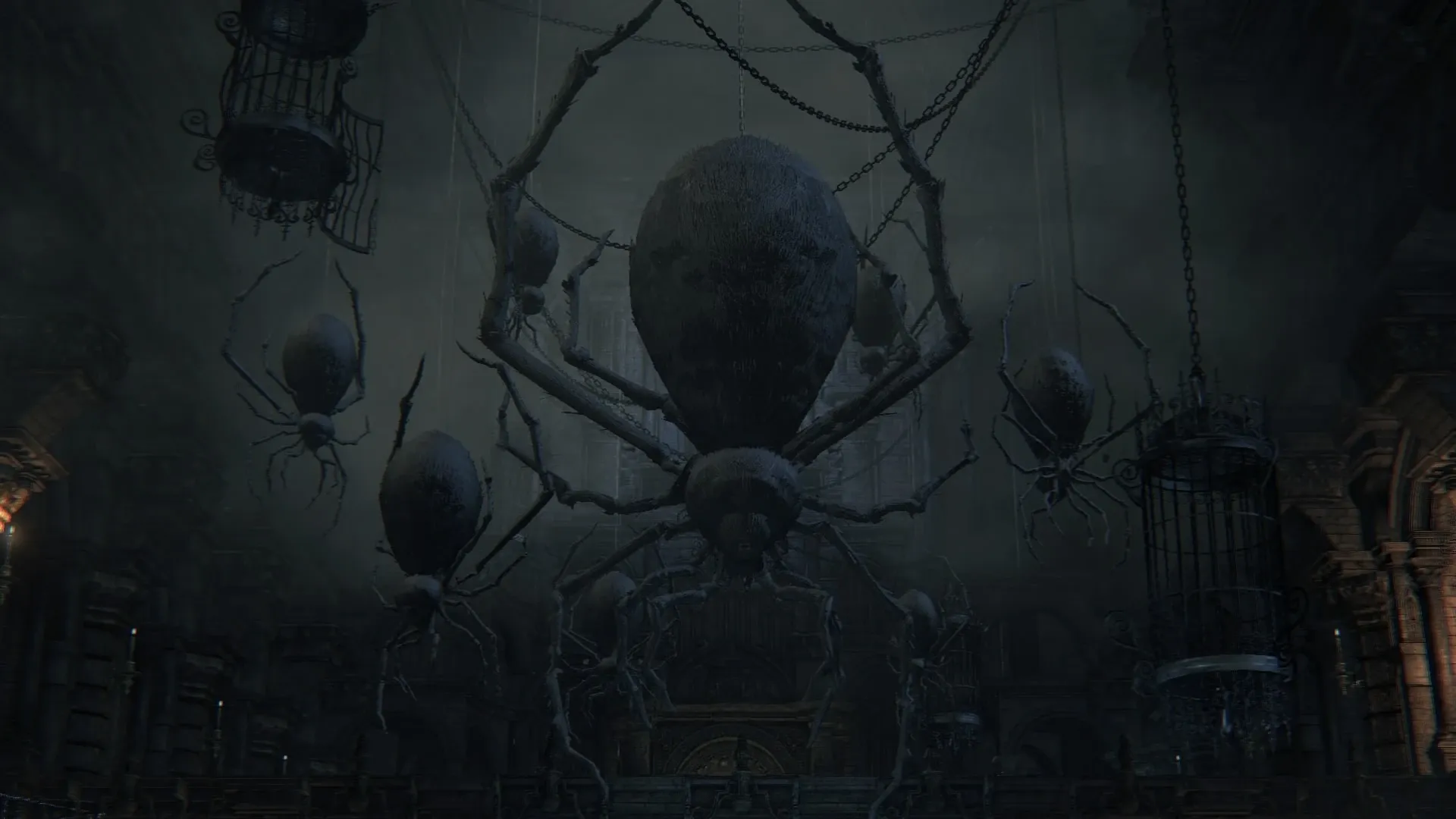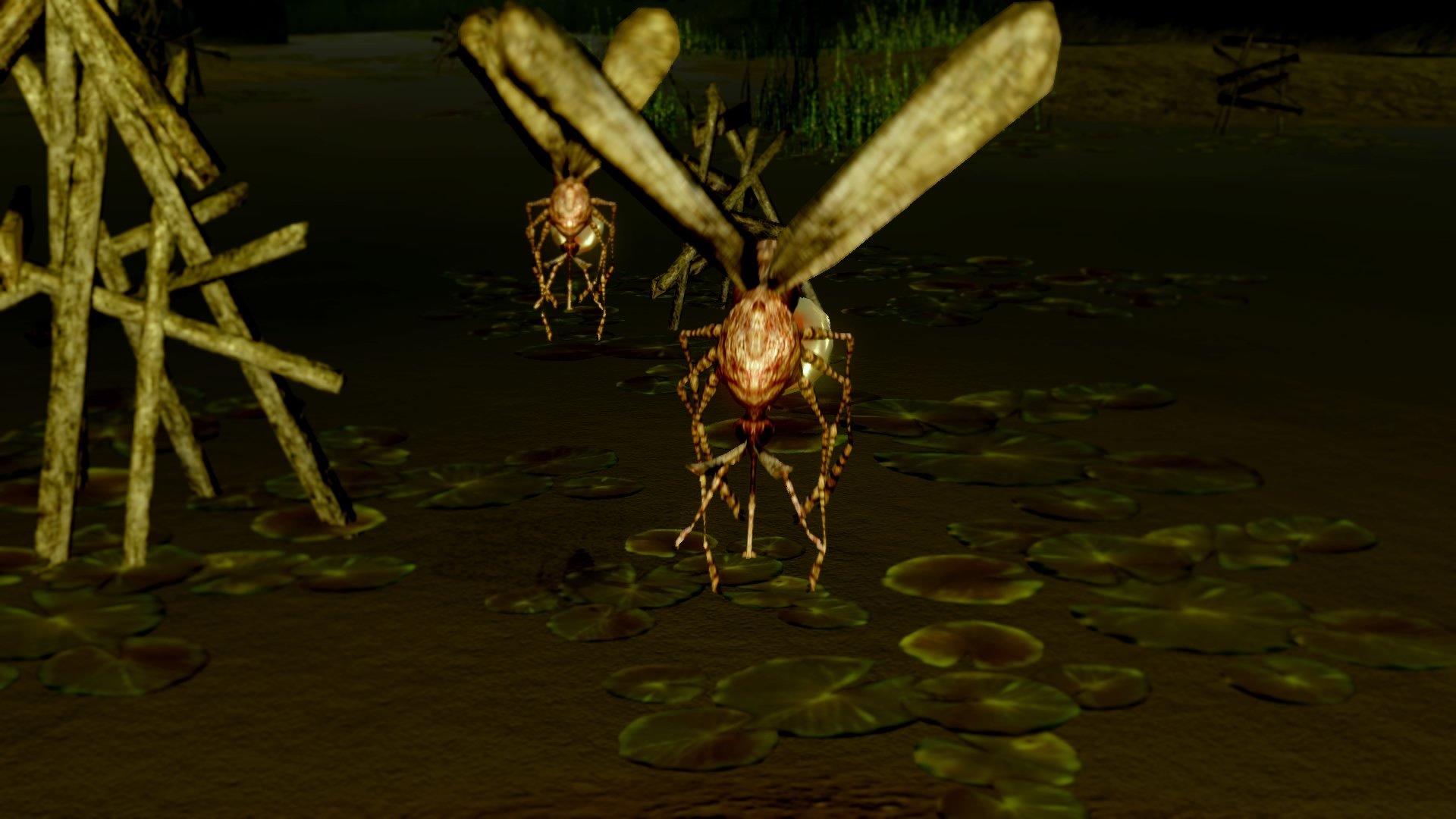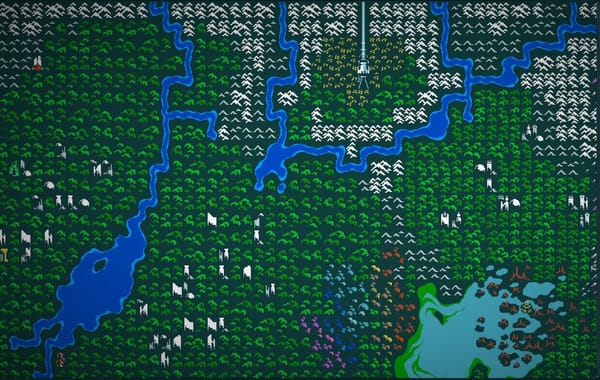Save the Spiders
...or how I learned to stop caring and replace them instead.

CONTENT WARNING: INSECT, SPIDERS
A different set of lights over here. Change, in many ways, is healthy. The obvious elephant in the room: I have left Substack. I met a couple of wonderful writers over there, and I appreciated having that space while it lasted. In the interest of not over-longing the statement: I just couldn't stand sharing space with Nazis, or people with a fundamental misunderstanding of what free speech entails, to the point where they think asking a social media website to moderate itself is seen as an attack on their right to freedom of expression. I'll leave it at that.
Change, in many ways, offers a chance at re-introductions. I tend to abide by two fundamental rules:
1) all my articles will be free, monetary compensation is completely optional.
2) at least one Big post a month
I tend to scatter tinier pieces throughout the months depending on what my nifty, artsy, beautiful Infinity Rocks calendar commands me to do. Special dates are scattered throughout the manuscript. March 14th reads "Save a Spider Day", followed closely the next day by "Buzzard Day". Two-for-one, gotta concoct something related to arachnids and one of the most common birds of prey...
This is the Big one, as the topics at hand offered some interesting discussion on the nature of accessibility in games. For the buzzards, I am going to write something about Balatro and Luck Be a Landlord, for them to beak and claw over later in March. Welcome back to ...Or How I Learned To Stop Caring, I am so happy you're here.

I suffer from pretty severe insectophobia. Even ants freak me out. When I see a bug, I feel a shiver in my spine, tingling in my arms and numb fingers. I am quite squeamish IRL, but videogame insects don't usually terrify me. I attribute this to the fact most games tend to stick to stylistic representations of the invertebrate creatures, as the more you lean into realism the more you risk a descent into the valley of uncannyness.
That's what I thought, until I played Elden Ring, and delved deep into Ainsel River and the ruined, ancient city of Nokstella. The giant ants creeped me out to the point they were my biggest challenge, not though mechanical complexity or even combat superiority, but just purely based on how frozen in fear I was when fighting them. Even pasting the above image took up a gulp of courage.
FromSoftware designed the creepiest crawly in gaming history, its carapace so close to the real thing it flew straight over the uncanny valley. It was as if a real-life ant had grown in size due to ancient magics and now haunted my GPU. Fuck, I hate bugs, and that's why I've always loved spiders. They're the best housemate to have around– they take up very little space (a corner in your house should suffice), and they tend to be neat and keep to themselves. If you don't disturb them, they won't bother you. Oh: and they are apex predators that trap and kill annoying critters. God, I love spiders.
Arachnophobia is all the more common, and from here the original thread was spun. What was supposed to be a small egg of an article, soon sprouted into a hatchling, which grew into a multi-legged beast, spinning a web I got enthralled in. What once was a silly article about the ways games "censor" spiders, soon turned into a deep meditation on the nature of accessibility in gaming, through the scope of two topics: the addition and/or alteration of videogame spiders, and a criticism on how difficulty is often used to decry games as inaccessible.

We've seen an influx of AAA titles with arachnophobia sliders, allowing players to alter the spider models to be less menacing or remove them altogether. Hogwarts Legacy, Star Wars Jedi: Survivor and Grounded are all recent examples, but I've played none of them so can't attest personally as to what these sliders do.
The only game I've played in recent memory with an arachnophobia mode was the streaming breakout success of 2023, Lethal Company, where instead of a slider, you get a simple checkbox that replaces the arachnid thoraxes with a big, block of red text that reads SPIDER. This nails the delicate balance of comedy and horror Lethal Company achieves flawlessly. Zeekerss' monsters are dangerous and deadly, seeing a DER peer around the corner indicates a threat, still causes a player to run and scream...from a creature composed of nothing but red letters. Brilliant.
The first draft of this article was mired in this inherent silliness. I would point and laugh "Look at these funny ways gamers and developers have censored spiders. Aren't they hilarious!". Then I realized: this is way deeper than I originally thought – I was obfuscating censorship with accessibility. I was thinking of all these alterations and removals of in-game models as some sort of censorship for the sake of humor, but instead, it was meant to appease gamers with deep-rooted phobias, gamers who could not play the games due to the sudden paralysis when confronted with spiders. These are sliders and modes made for accessibility purposes.
Thinking of my own experiences with Elden Ring's ants threw another, different color wrench into the gears of this discourse. There's been a revolving door of debate regarding accessibility in games whenever FromSoftware releases a new Souls game. It's about time I threw my own hat into the ring, hoping it doesn't get squashed by the centrifugal force.

Over a decade ago, The Elder Scrolls V: Skyrim fus-roh-dah'd its way into consoles and PC. The tutorial dungeon forced you to face our eight-legged friends (or freaks, depending on your disposition) and I can only imagine the fear was similar as to what I felt with the Elden Ring ants. With their bulbous jaws, hairy legs and chittering screams they were an arachnophobe's worst nightmare.
Luckily, our trusty PC modders have been implementing "arachnophobia modes" long before game developers ever thought of it. From the very start of the money machine that was Skyrim, modders gave us options to alter the spiders into barely-animated bears, and later on you could transform the ghastly creatures into New York's very own friendly neighborhood Spiderman. The humor in these decisions is undeniable, but there's also a quite caring and empathetic facet to these modifications.
Gamers are more concerned with the games they enjoy being accessible than developers – the recent rise of accessibility modes is a direct result of people petitioning for more inclusive games. Maybe this is cynical of me to say, but I believe a lot of people behind AAA studios only care about profits and appeasing the shareholders. They're not doing accessibility for the sake of creating a more inclusive and accepting videogame environment and culture but instead are motivated by more consumers purchasing their products. Hence, we must rely on each other to improve ease of access.
The way gamers have come together in the name of accessibility is wonderful and I fully support it. I believe we have seen improvements in the game development culture as a result, more and more I see colorblind modes and accessibility controls in the games I play. Yet, to state this in the most uncontroversial way possible, not every game is designed to be accessible, and this is a quality shared by many art forms.

If videogames are underappreciated artworks, then they must share similar qualities as other art-forms. I genuinely believe they do: I believe videogames are made with a variety of styles, multifaceted genres and evoke different feelings and cultural observations. Art is so expansive, it is unrealistic to say every piece of art is made to be accessible to everyone. Videogames suffer from a similar reality.
The true focus of accessibility often exists outside of art objects themselves, how we get people to interact with them. This is where accessibility controls come into play, or colorblind modes, or arachnophobe modes, or game controllers made for people with disabilities. They don't alter the essence of what the game is but work to improve our interactions with them. Museums accomplish a similar function with wheelchair ramps, audio for the visually impaired, and handicapped parking spots. No one with bad vision is asking for the Sistine Chapel to be brought down, to stare unto Adam and God better. So why is there such an extreme demand on the labor of game developers, and cries of inaccessibility when it comes to games designed with a certain skill ceiling and difficulty in mind?
Similarly to how I confused censorship with accessibility, I believe plenty of gamers conflate difficulty with ease of access. I do not wish to be misunderstood, so I will state plainly for the record: we need to make games more accessible for people with disabilities and crippling fears, while still allowing developers to design games in the ways they want without further burdening them with requests. In many cases, we must rely on each other (and modders, especially) to make this happen.

FromSoft's Souls games are often highly regarded for their expansive lore, aesthetic dark fantasy design and brutal difficulty. To me, Souls games are like walls meant to be broken by smashing my head continuously into them. Sure, my skull might crack a couple of times, but once the wall is demolished, that dopamine hit is more satisfying than any drug out in the market.
They're games that demand a lot of patience and perseverance from its players to "git gud" – enemies can wither your health to zero with few hits, whereas it takes precise dodges and artful attacks to fell any boss, made even worse by the punishment death offers and the lack of readily-available checkpoints.
It is in this inherent difficulty-by-design, where critics of the series state it is inaccessible. Not only do I find this a brutal dismissal of various disabled gamers who already enjoy FromSoft games, but I believe focus is being diverted from actual solutions to accessibility issues.
Altering a Souls game's difficulty (and yes, I consider Bloodborne and Sekiro to be Souls games, sue me) would be to fundamentally disrupt how and why the game is designed with its brutal difficulty. Furthermore: modders and fellow gamers already offer "easy" modes for Souls games, and difficulty by itself is a hard thing to define given its subjectivity. My siblings in Christ: if you want Souls games to be easier, there's truly no shame in altering it yourself.

While it might seem I'm a simple naysayer to critics of my beloved Miyazaki, my opinion is a bit more neutral. I don't necessarily believe that the addition of an "easy mode" would ruin a Souls game. Let's say Elden Ring 2 comes out with an easier difficulty option, I would simply choose the regular option. Give me Dark Souls or give me death, I would play it no other way. At no point are hardcore Souls fans being forced to play on an easier undesirable difficulty level. But, demanding more labor out of developers to implement such modes, defeats the freedom of choice and design these same programmers have to make the game they want. Souls games are designed to be difficult by default. The dopamine hit of success just wouldn't hit the same without some seemingly insurmountable challenge surpassed by my sword skills.
The difficulty vs accessibility debacle is further confounded by the fact difficulty is incredibly subjective and perceived differently from gamer to gamer. Some people find Souls games rather easy, others can't even beat the tutorial boss. Some don't find Dark Souls and its various iterations a challenge of skill but more a challenge of time, patience and perseverance. Rather than being tested on their reaction time, some players study and learn the boss patterns for ultimate victory.
There are also mechanics in the games that can offer some dynamic modulations to difficulty. You can solo every boss, or you can summon, ask for help. By god, you can even cheat, I believe this is a valid way to make games easier. If all you worry about is victory, fuck the naysayers: cheat away...just please don't go online with that hacked shit, out of respect for other players.
I remember a journalist got absolutely shat on for using a slowdown tool to defeat Sekiro's final boss. He was criticized and mocked for his illegitimate victory, but I disagree: his approach is completely valid. Not only is Sekiro a single-player game, so there's no risk of cheating other players of their experience via hacks and cheats, but we have always depended on modders and each other to improve and alter games to our liking. This is a continuation of such practices.
We started with a discussion about fear– fear of spiders and fear of insects; these conversations about difficulty and access do inform us of some fears and grievances held by gamers. A fear of no resolution, of not being able to play and complete games others so readily enjoy. Valid complaints focused on the wrong element. I offer a compromise: let's give developers the same freedom we grant to artists, cause they are making works of art, and further strengthen our own communities to implement better accessibility. Let's realize that in the broad sea that is gaming, not every game is being made to cater to everyone. Let's remove the spiders, and let difficulty be.
THE DESSERT CART

It seems appropriate to share my friend's wordpress, The Radiant Cesspool, as by pure coincidence she has also written about FromSoftware recently, Specifically, a review of Bloodborne filled with incredibly well-argued and valid criticisms. I am a simple woman: I see Bloodborne, neuron activates, must share Bloodborne article. Jill is a fantastic writer and deserves not just your attention, but your support. Please read, share and subscribe.





